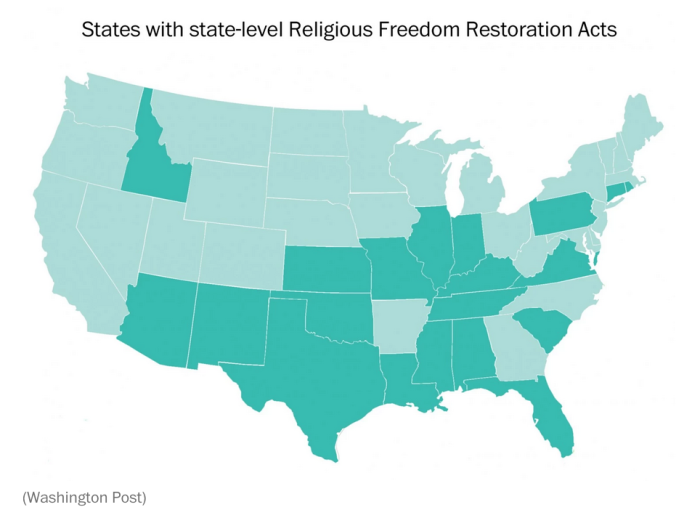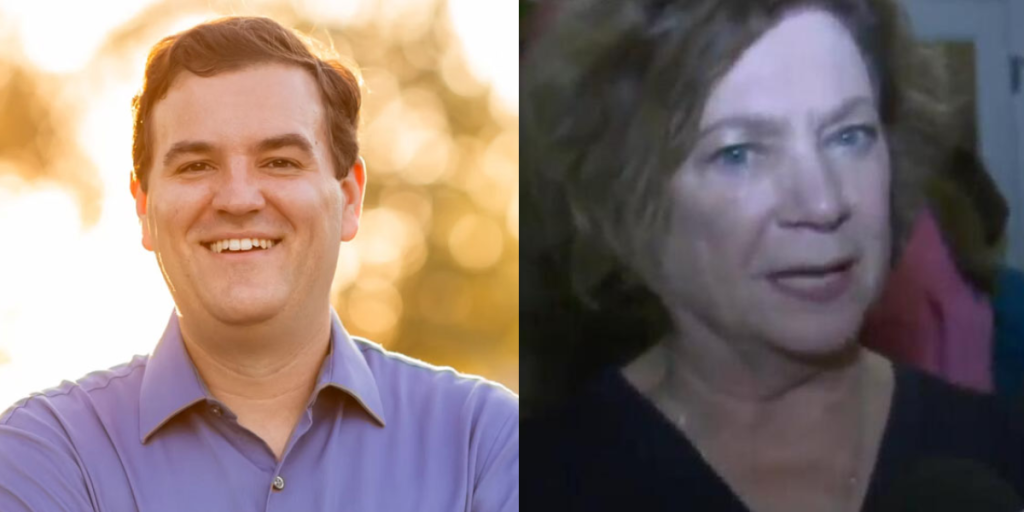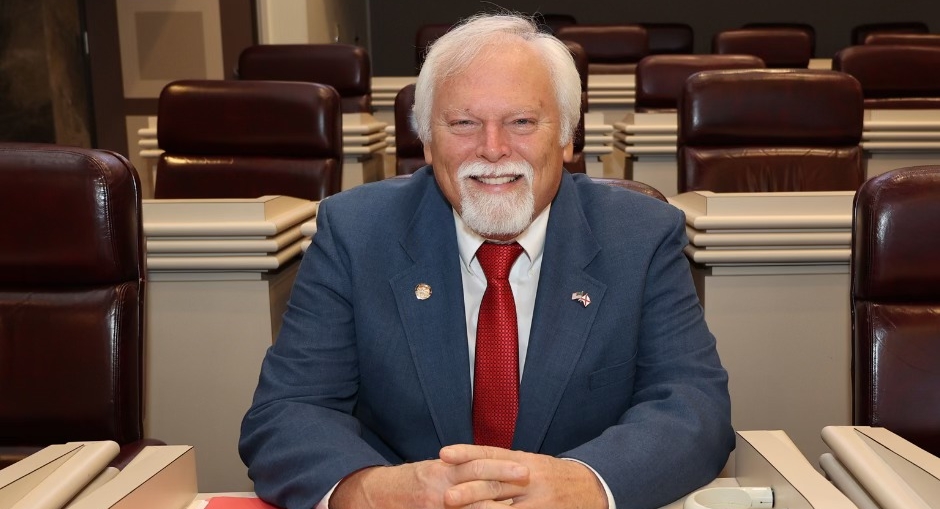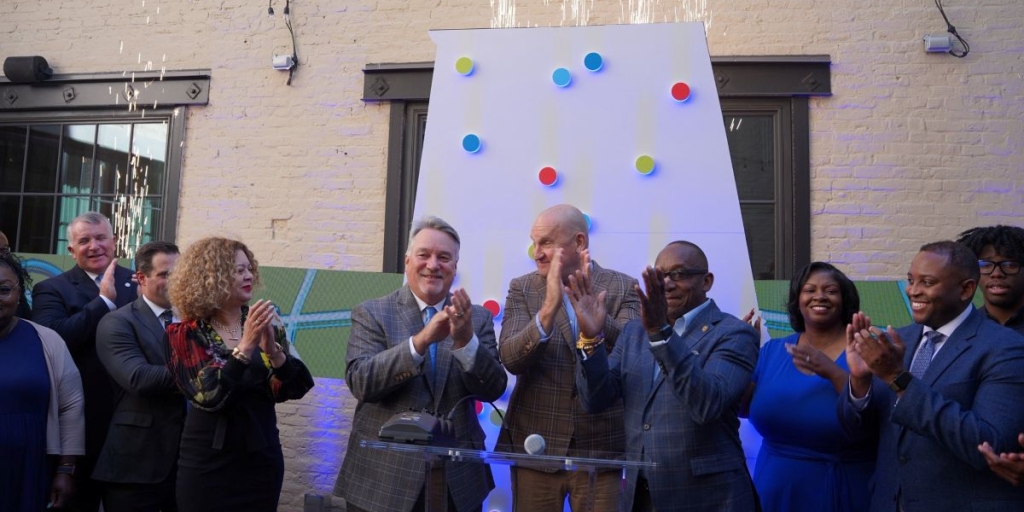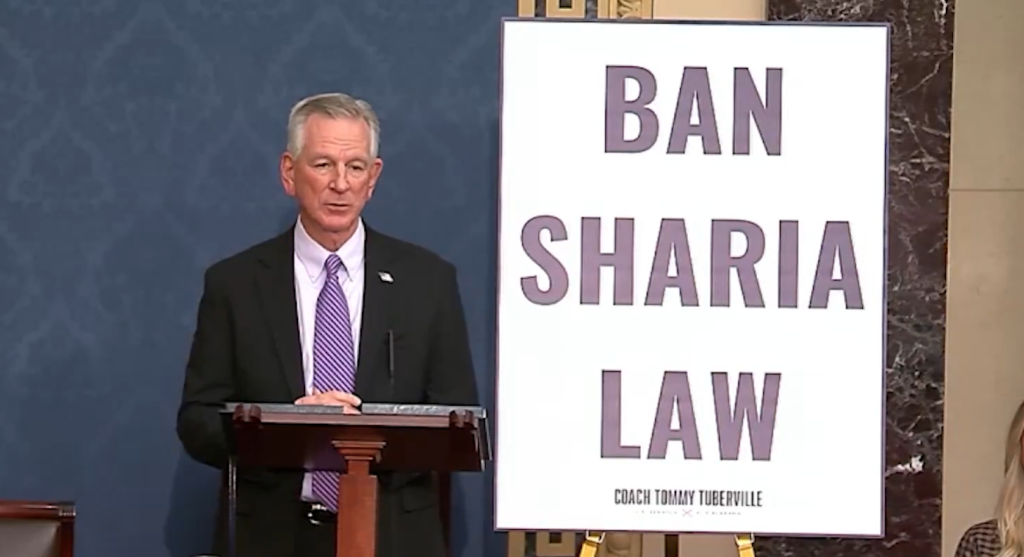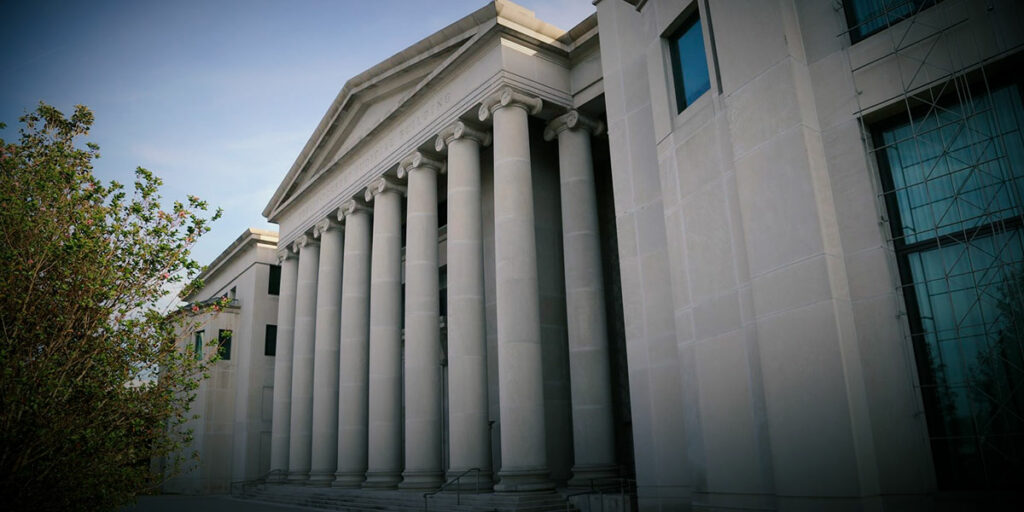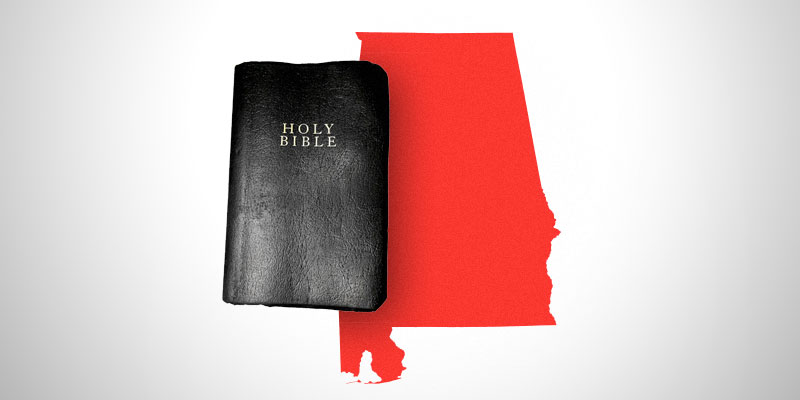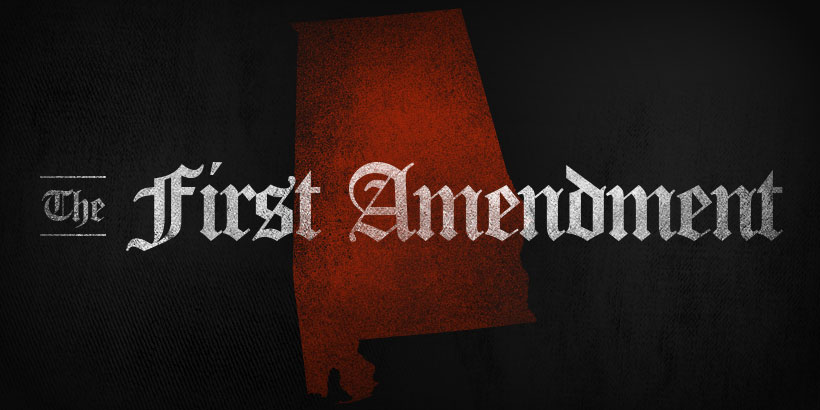
INDIANAPOLIS, IN — Proponents of same sex marriage responded quickly when Governor Mike Pence (R-IN) signed a Religious Freedom Restoration Act (RFRA) last week by calling for a boycott of the state, but Indiana isn’t the only state with an RFRA; 19 other states have a similar law in place, including Alabama.
Alabama’s RFRA, Amendment 622 in the State Constitution, was passed in 1998 after the U.S. Supreme Court held that a federal version was unconstitutional, that such regulations should be left up to the states.
“The purpose of the Alabama Religious Freedom Amendment is to guarantee that the freedom of religion is not burdened by state and local law; and to provide a claim or defense to persons whose religious freedom is burdened by government,” Alabama’s law states.
Here are the other states with similar legislation:
13 other states are reportedly considering similar laws.
Opponents of Indiana’s law say it opens the doorway to legalized discrimination, but proponents say they want their rights of religious freedom and association as laid out in the Constitution to be protected.
Recent highly-publicized lawsuits against photographers, cake bakers, and other wedding service providers have left many business owners feeling as if they have to choose between observing their deeply-held religious beliefs and losing their business in an expensive court case.
After signing the bill into law, Gov. Pence said the bill had been “misunderstood” and that “If I thought it legalized discrimination in any way in Indiana, I would have vetoed it.”
Several companies have threatened to stall expansion in the state, and the NCAA Men’s Basketball Tournament which is slated to hold the Final Four in Indianapolis this week, is reportedly “troubled” by the law.
Alabamian and Apple CEO Tim Cook spoke out against the law in an op-ed for The Washington Post Sunday. “Our message, to people around the country and around the world, is this:,” Cook said, “Apple is open. Open to everyone, regardless of where they come from, what they look like, how they worship or who they love. Regardless of what the law might allow in Indiana or Arkansas, we will never tolerate discrimination.”
Others say that everyone must be afforded the same rights to choose to whom they will and will not give service, when sincerely-held religious beliefs compel them.
Many legal scholars say the Indiana law, and those like it across the country, are an important protection for private citizens.
“It’s not right to see RFRA as a response or a reaction to what’s happening with sexual orientation discrimination or marriage,” University of Notre Dame law professor Richard Garnett, who supports the law, told the Indy Star. “It is bigger than that.”
The example he used was of Amish communities who were going to be required to illuminated their horse-drawn buggies with bright florescent lights. In a case using a RFRA, a court found that the state had an interest in public safety, but a compromise could be found without violating the Amish dedication to living a simple life—reflective tape and kerosene lamps.
While Alabama’s law has yet to see the type outrage being witnessed in Indiana today, there is no question that the debate rages on across the country over where the 1st Amendment protections of private citizens begin and end.
Like this article? Hate it? Follow me and let me know how you feel on Twitter!
— Elizabeth BeShears (@LizEBeesh) January 21, 2015




